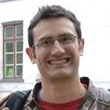Foundations of Quantum Computing
A special issue of Axioms (ISSN 2075-1680). This special issue belongs to the section "Mathematical Physics".
Deadline for manuscript submissions: closed (31 January 2020) | Viewed by 14927
Special Issue Editors
2. Università degli Studi di Cagliari, I-09123 Cagliari, Italy
Interests: quantum information processing; quantum correlations; uncertainty relations; majorization theory and its applications
Special Issues, Collections and Topics in MDPI journals
Interests: foundations of quantum mechanics; quantum information theory; quantum probabilities; quantum logic
Special Issues, Collections and Topics in MDPI journals
Special Issue Information
Dear Colleagues,
The advent of quantum information theory and the possibility of developing quantum computers gave rise to a rich and multidisciplinary field of research, gathering experts from physics, computer science, mathematics and logic. The LoCIC network, that connects experts from different countries of the South American region (for more information, visit the website: http://locic.web.unq.edu.ar/en/), aims to promote academic debate in all areas of quantum information processing, by organizing regular local meetings on the subject open to researchers and students as well. This peer-reviewed Special Issue is part of that effort and is focused in both, the mathematical and physical foundations of quantum computing. Researchers are welcome to present their original and recent developments, as well as review papers, on the topics listed below.
Topics of the Special Issue:
- Foundations of Quantum Computing
- Quantum Information Theory
- Quantum Algorithms
- Computational Logic
- Mathematical Logic
- Lambda Calculus and Type Theory
- Logical Frameworks
- Domain Theory and Categorical Models
- Quantum Communication
- Quantum Correlations
- Uncertainty relations
- Violation of Bell Inequalities
- Decoherence and Classical Limit
- Quantum Contextuality
- Quantum Logic
Dr. Gustavo M. Bosyk
Dr. Federico Holik
Guest Editors
Manuscript Submission Information
Manuscripts should be submitted online at www.mdpi.com by registering and logging in to this website. Once you are registered, click here to go to the submission form. Manuscripts can be submitted until the deadline. All submissions that pass pre-check are peer-reviewed. Accepted papers will be published continuously in the journal (as soon as accepted) and will be listed together on the special issue website. Research articles, review articles as well as short communications are invited. For planned papers, a title and short abstract (about 100 words) can be sent to the Editorial Office for announcement on this website.
Submitted manuscripts should not have been published previously, nor be under consideration for publication elsewhere (except conference proceedings papers). All manuscripts are thoroughly refereed through a single-blind peer-review process. A guide for authors and other relevant information for submission of manuscripts is available on the Instructions for Authors page. Axioms is an international peer-reviewed open access monthly journal published by MDPI.
Please visit the Instructions for Authors page before submitting a manuscript. The Article Processing Charge (APC) for publication in this open access journal is 2400 CHF (Swiss Francs). Submitted papers should be well formatted and use good English. Authors may use MDPI's English editing service prior to publication or during author revisions.





